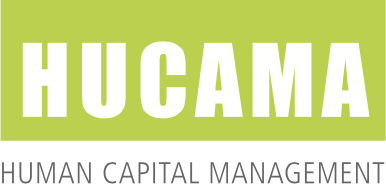Loosely defined as those born after 1995, Generation Z has been shaped by social media, technology, the post 9-11 world, and a deep recession. This is very different from the Millennials, who grew up in relative peace, prosperity and the “Boom Times” of the 1990s.
They have grown up as digital natives; with the knowledge that they can speak to anyone, anywhere around the world, at any time and find any information they need within seconds. Electronics that were a luxury for their parents and older siblings, have always been a part of their lives. These ‘digital natives’ have a unique understanding of digital tools along with an outstanding ability to adapt to new situations in no time. This ability can be a gold mine for organizations, but understanding the motivations and skills of this unique generation is vital to talent recruitment and retention.
Generation Z are not only digital natives who have grown up in far more ‘uncertain’ times than the generation before, they are also the most diverse and multi-cultural of any generation. While generations before fought for gay rights and same-sex marriage, these are the standard for people growing up in the 00s. While their politics vary, and can tend towards the economically conservative, they think that being socially liberal goes without saying and are often horrified that anyone could think otherwise.
By 2020, Generation Z will make up 20% of the total workforce. Many recruiters weren’t ready when the millennials arrived on the scene, and the past has taught us that we have to prepare for a new generation entering our job market. Luckily there is still some time to prepare for Generation Z and in this post, we will give you three keys to focus on.
Continuously feedback is the first key
Generation Z is a generation who has been used to having their say at home and their schooling has been focused on testing, talent and individual development.
This upbringing has made Generation Z used to personal attention. They do not have to be the one in the center all the time, but they crave and demand attention. This means that companies must constantly offer feedback, and opportunities to grow within the company to keep Generation Z employees engaged.
The concept of feedback is not a new thing for companies. When the millennials arrived on the scene, they too were asking for more feedback and many companies have already cut out quarterly reviews for frequent and systematic feedback.
Dedicating even more resources to developing an in-house mentorship program will save you on recruiting in the long-term because it will help you retain your Generation Z employees. Devoting the time to give more feedback will, of course, take time away from something else, but the continuous feedback will drive your Generation Z – as well as the Millennial – workforce to strive for improvement.
A clear development plan is the second key
Unlike the Millennials who were encouraged to dream big as young adults, Generation Z has grown up with the knowledge that financial crisis can turn everything around. This is reflected in their inclination to prioritise working towards a career more than chasing a pipe dream. Having grown up in a tumultuous economic and politic time (they were only preschoolers when 9/11 occurred, and grew up during the Great Recession), they are incredibly focused on finding stable jobs, mostly in tech and health-care.
The majority of Generation Z say that they expect to work for an average of four companies throughout their career. This may seem like they are unloyal to the company they work with, but it is actually due to the fact that Generation Z is looking for the best opportunities to grow and to ensure the possibility of establishing a good, and for many, well-paid career. In many ways, this generation demands that a company adapt to their needs rather than them adapting to the culture and values of the company. The loyalty lies with the opportunities not just the company.
To retain the Generation Z workforce, companies have to figure out how to be that special company that earns their loyalty. They want to do great work, of course, but they also want to make sure that the years invested in their jobs are propelling them forward on their journey of self-development. Simply put, they want to be developed into leaders rather than serve as a cog in a machine.
A clear and challenging personal development plan is an important key to succeed in hiring and retaining this generation. Tools like a Development Tracker Systems (DTS) can help companies effectively manage the regular feedback and development cycle that motivates Generation Z employees. A DTS is an online feedback system measuring employee performance with 100% individualized items focused on specific development areas. HUCAMA has successfully implemented Development Tracker Systems in several medium-sized local companies to large international companies.
Inspire more than controlling is the third key
The Generation Z workforce doesn’t want the hierarchy that previous generations worked within. Leaders will have to adopt another form of leadership – a management-style that is more inspiring than guiding. Generation Z are self-managing and need feedback and opportunities rather than control.
Technology has greatly encouraged independent thinking, and the new workforce wants to feel some sort of ownership. Instead of fighting it with old-fashioned management styles, find ways to allow this autonomy to work to your benefit. Since they are driven by desire, interest and trust, give them a project, small or big, and allow them to run it – mistakes and all. This is how they will learn ways to work smart. Trust and purpose of the job will become the glue that connects your workforce. If you want to succeed as a leader you need to be able to contribute to this kind of community; by highlighting trust before systems and rules. At the same time, you need to make sure that you remain involved enough to help them get back on track – and actually integrate the lessons learned.
Contributions of the Zs
If organizations bring these three keys into play – continuous feedback, clear development plans, and inspirational leadership – they will have a great chance to attract and retain the next generation entering our job market.
Generation Z is a generation full of people who are self-aware, self-supporting, determined, innovative and entrepreneurial. Give them the freedom and space to form the organization’s content, vision and mission, and even the product. They are pragmatic, but at the same time they want to make a difference. They are used to the responsibility and they thrive with creativity and initiative.
Like millennials, this generation are driven to ignite positive change. They demand that the company isn’t just talking the talk, but also walking the walk. Give them a good story to tell, and let them tell it. They have a huge network – and nowadays words spread faster than ever before.
Give this new workforce a sense of togetherness along with opportunities to share their ideas and feel heard. You never know what they will come up with. One new idea might impact your business for the better.
HUCAMA can help you to manage and lead generation Z in the workplace. We have the experience and tools for you to succeed.

Our focus is to create the optimal relationship between individual fulfillment of a good and engaged work life and fitting that with the global goal of the organization. We design both the technology and the processes that help organisations to manage competencies.


Trackbacks/Pingbacks